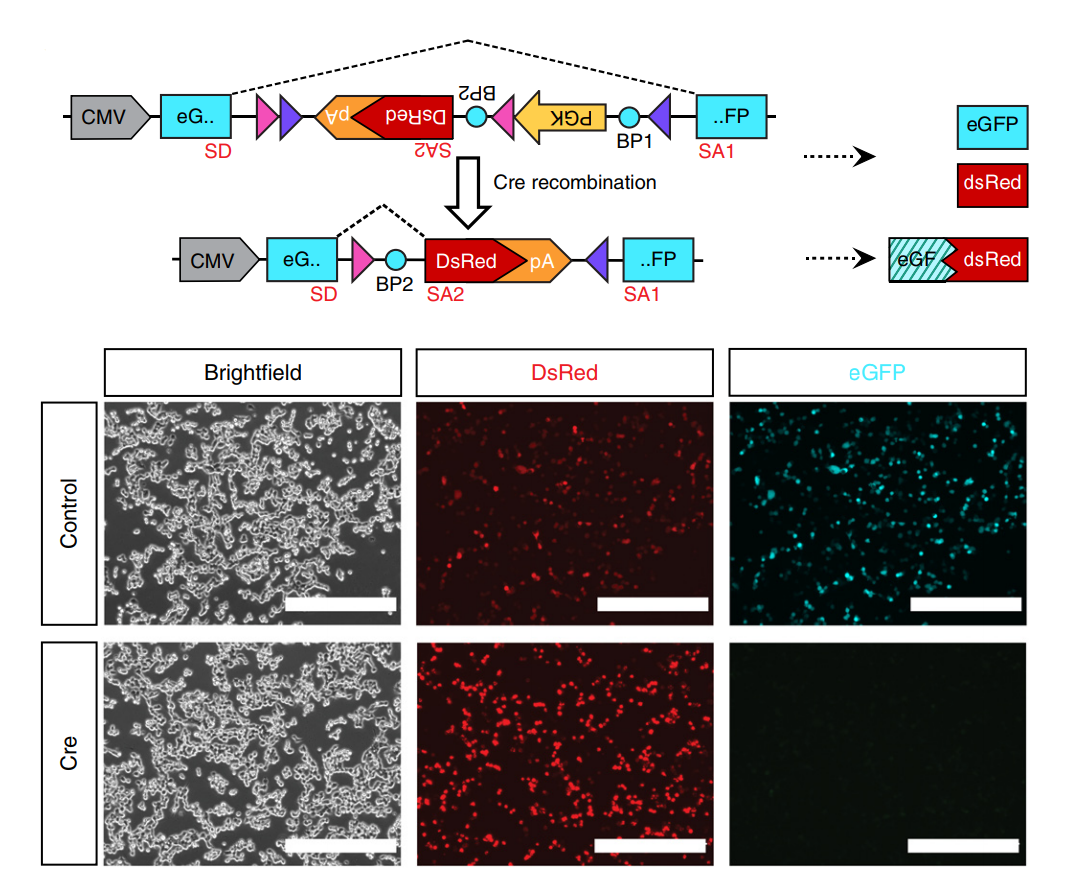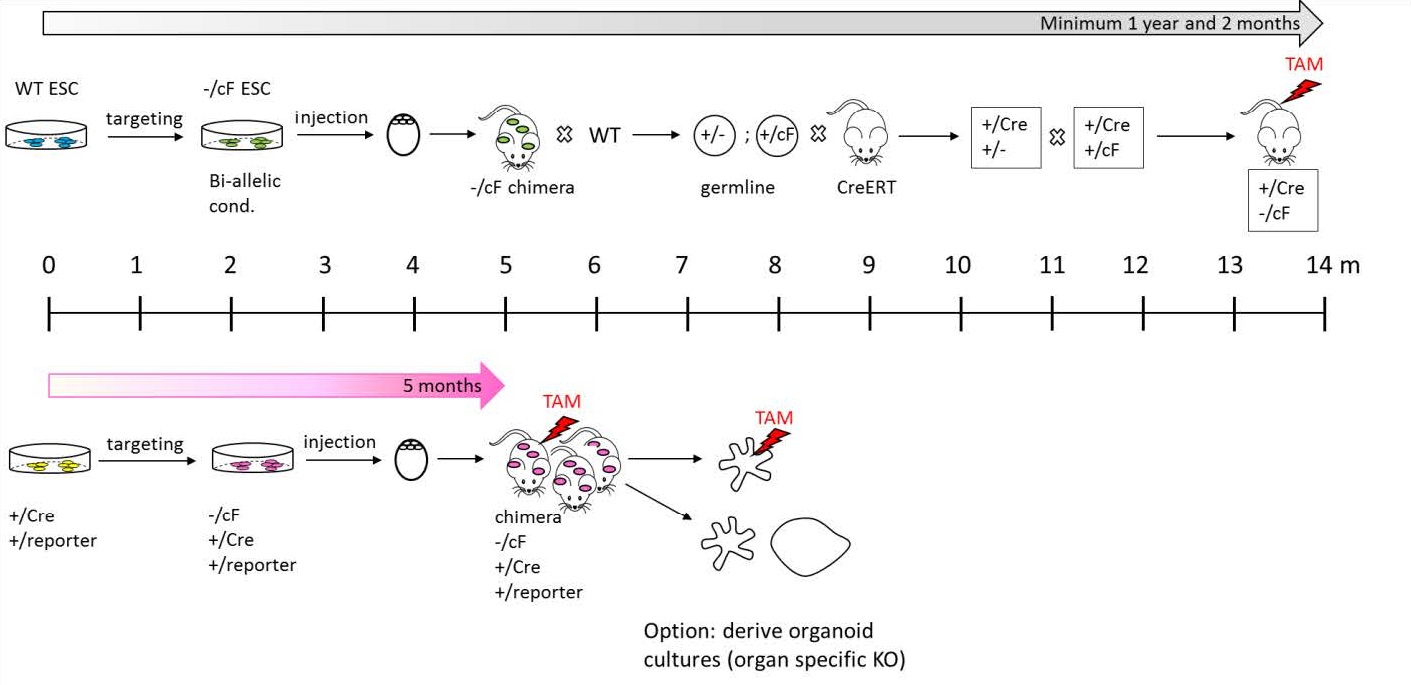FLIP: Rapid Production of Conditional KO Cells and Model Animals
Technology
“FLIP” is a method developed by scientists at the Sanger Institute and Cambridge University that considerably improves speed, affordability, scale and efficiency of producing conditional KO models.
Briefly, the single insertion of a custom intronic cassette targeting a gene of interest simplifies complicated knock-out strategy. The gene-targeting cassette can be inserted in a single step using your preferred gene editing technology such as CRISPR, Talen or zinc finger nuclease within a key exon of a gene of interest. The cassette is designed (top panel below) to allow for the normal expression of the targeted gene of interest as well as of a selection marker (e.g. DsRed in example below). Gene KO is achieved using a recombinase step, where the cassette orientation is then reversed, disrupting the gene of interest (GFP in the example below) while maintaining expression of selection marker. Bottom panel shows expression of both GFP and DSred in HEH293 cells targeted with the novel cassette and the specific knocking out of GFP expression following cre-mediated recombination.
(Banner image credit: Blue Andy, Shutterstock)

Advantages
- Simplicity: single-step conditional targeting.
- Time-saving: shortens KO mouse generation by several months.
- Reversibility: the cassette is designed so that the use of a second recombinase restores gene expression.
- Efficiency: methods exemplified in Human IPS cells, Human organoid cultures, Human cancer cell lines, mouse ES cells, and a dozen genes.
- High-throughput: electroporate or chemically transfect cells.
Detail

Background
The advent of CRISPR-Cas9 editing makes on-demand genome manipulation a reality and promises to deliver a vast resource of novel models for discovery and preclinical R&D. However, approximately a third of genes are essential to embryonic development or cell survival and are not readily knocked out. To bypass this difficulty, conditional KO methods that time or tissue restricts gene deletion have been developed. While these approaches have proved extremely useful, and have enabled the study of difficult to target genes, they typically require multiple gene insertions and recombination steps to carry out.
Intellectual property
Early access manuscript on “Rapid, one-step generation of biallelic conditional gene
knockouts” available at https://www.ncbi.nlm.nih.gov/pmc/articles/PMC5777571/
Priority UK patent application filed. The Wellcome Sanger Institute is offering non-exclusive licenses to its IPR.
 FLIP: Rapid Production of Conditional KO Cells and Model Animals PDF
FLIP: Rapid Production of Conditional KO Cells and Model Animals PDF